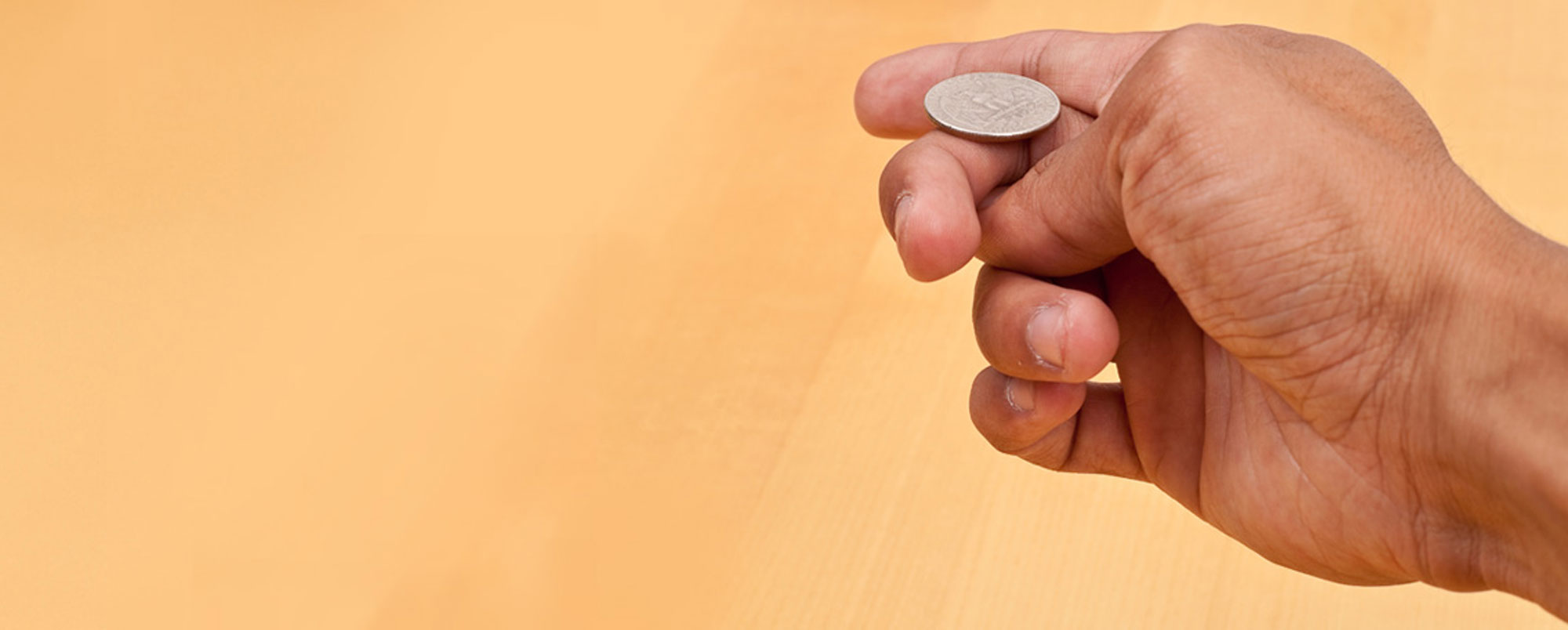How to make a bad decision by Stephen J. Dubner and Steven D. LevittNovember 28, 2016 | New York times
Let’s say I flip a coin and it comes up heads. Now I flip it again — heads. One more time, heads again. If I were to flip the coin a fourth time, what would you predict would happen? A lot of people would say tails, definitely tails — even though we all know that a coin toss is a random event, and that each flip is independent of the previous ones, and that therefore the odds for any one toss is always 50-50. But that doesn’t sit well with most of us; we’re convinced that past random outcomes affect future random outcomes.
This is what’s known as the “gambler’s fallacy.” The name refers to a common misconception among rookie gamblers: that because a given slot machine hasn’t paid out in a while, it’s bound to pay out soon. Experiments have shown that our pattern-seeking brains often fall prey to the gambler’s fallacy, which leads us to make poor decisions — like dump a bunch of money into a slot machine.
Recent research by Yale economist Toby Moskowitz reveals that people’s susceptibility to the gambler’s fallacy isn’t restricted to coin-tossers and gamblers; important decision-makers in all manner of high-stake situations can fall into a similar trap: They allow their past decisions to affect future ones, often unconsciously.
Take baseball umpires, for example. Moskowitz’s recent paper “Decision-Making Under the Gambler’s Fallacy” (co-written with Daniel Chen and Kelly Shue) combed through data from more than 12,000 baseball games, which included roughly 1.5 million called pitches — that is, pitches where the batter doesn’t swing, leaving the umpire to decide whether the pitch is a ball or a strike — and 127 different home-plate umpires. Focusing on identical pitches that fell right on the line between a ball and a strike (i.e., the toughest calls), Moskowitz found that a pitch preceded by a strike call was about 3.5% less likely to be called a strike, and that this number was even larger if the pitch in question was preceded by two called strikes.
Or how about loan officers — the guys who decide whether banks lend us money? Using data from a separate study by Shawn Cole and others on employees at an Indian bank, Moskowitz and his research partners were able to show that, excluding all other factors, the order in which different loan officers reviewed the same set of loan applications influenced their decisions. For example, an officer who reviewed three positive applications in a row would be far more likely to deny the next one.
Even if you’ve never watched a baseball game or applied for a loan in India, you might care about how the United States runs its immigration courts, and whether it decides to grant asylum to petitioners (particularly with President Donald Trump in charge). As Moskowitz says, a court’s decision “could mean the difference between life and death, or imprisonment and not imprisonment.”
But even federal judges aren’t immune to the gambler’s fallacy. Moskowitz’s research team looked at 150,000 asylum decisions made by more than 350 judges between 1985 and 2013. Moskowitz was able to show that a judge who approved a particular asylum application was less likely to approve the next one by close to 1%, and that this figure jumped to almost 3% if the second decision was made on the same day. And it gets worse: If a judge looked at three applications in one day and approved the first two, he was less likely to approve the third by nearly 5%.
All of which might make you wonder whether we’d be better off with robots making more of the relatively simple judgment calls in our life, like whether a pitch is a ball or a strike. Of course, human nature being what it is — and most of us having an undeservedly high opinion of ourselves as good decision-makers — we probably won’t see wholesale automation of this kind anytime soon. Making decisions, after all, is a big part of what makes us human.
(Stephen J. Dubner and Steven D. Levitt are the authors of “Freakonomics” and “SuperFreakonomics.” Their latest book is “When to Rob a Bank … and 131 More Warped Suggestions and Well-Intended Rants.” For more information, visit Freakonomics.com; subscribe to the “Freakonomics Radio” podcast at iTunes or listen at Freakonomics.com/radio.)















